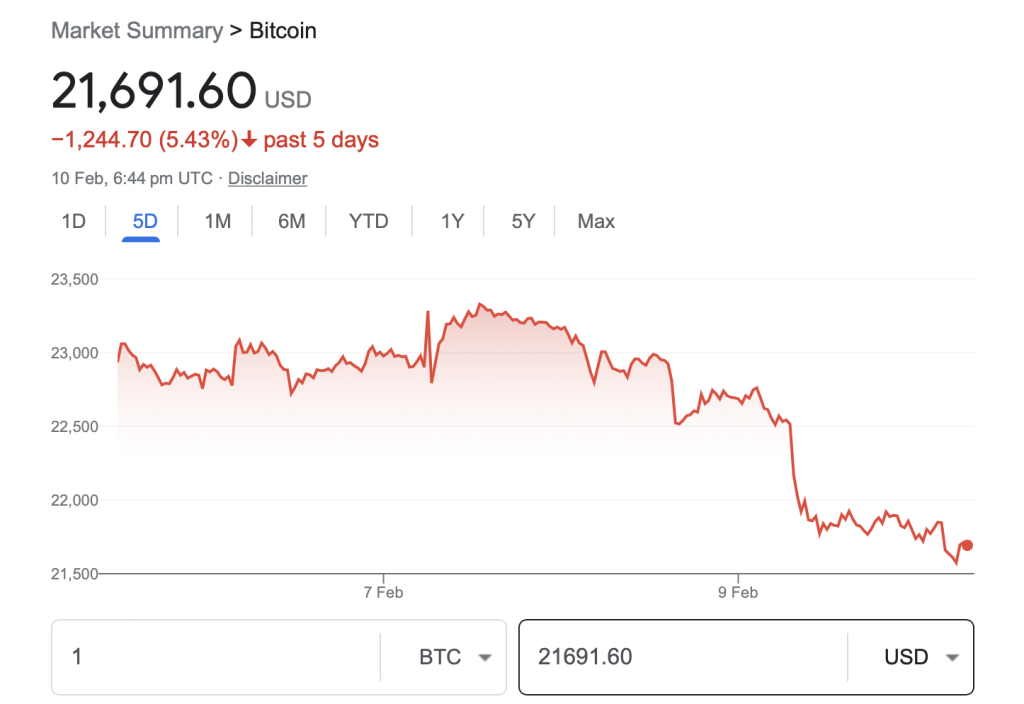The recent events surrounding Kraken have had a substantial impact on the already-turbulent cryptocurrency market. The United States Securities and Exchange Commission (SEC) has accused Payward Ventures, Inc. and Payward Trading Ltd., entities that are part of Kraken, of contravening regulations regarding the offering and sale of their crypto-asset staking-as-a-service program. This program entailed investors transferring crypto assets to Kraken for staking, with the expectation of obtaining advertised annual returns of up to 21 percent.
In response to the charges brought forth by the SEC, both Kraken entities have agreed to discontinue offering or selling securities via staking services and pay $30 million in compensation for disgorgement, prejudgment interest, and civil penalties. As one of the leading cryptocurrency exchanges, Kraken, based in San Francisco, has a daily trading volume of around $650 million globally and recently underwent major restructuring by reducing its global workforce by nearly a third, including the closure of its Abu Dhabi office. The recent $30 million fine to the SEC may have severe consequences for the exchange.
It is essential to understand the significance and implications of this development for the market, especially in terms of staking. Staking is a critical component of the decentralized finance (DeFi) world and comes in two forms – one where users provide tokens for consensus and network validation on proof-of-stake blockchains and the other where users stake liquidity pool (LP) tokens obtained while injecting liquidity into decentralized exchanges (DEXs). Staking provides a relatively low-risk avenue for generating passive income through validating crypto transactions and has become increasingly popular, with the estimated global value of staked assets at $42 billion as of the end of 2022.
However, like any investment, particularly in the cryptocurrency market, staking comes with inherent risks. Cryptocurrencies are known for their volatility, and the returns from staking may easily be outweighed by sudden drops in value, making it suitable only for those willing to hold their assets for a prolonged period and endure price fluctuations. Additionally, some coins may require a minimum lock-up period, and the process of withdrawing assets from a staking pool often involves a waiting period determined by the blockchain in question.
Counterparty risk posed by the staking pool operator is another consideration. If the validator fails to perform their duties correctly and incurs penalties, it could result in the loss of rewards for stakers. Staking pools are also vulnerable to hacking, and in the event of such an occurrence, the staked funds may be lost permanently, with little hope of compensation as cryptocurrencies are not typically insured.
The Kraken incident may have significant consequences for the crypto market and emphasizes the need for greater regulatory oversight in the crypto industry. The announcement led to a significant decline in shares of leading cryptocurrency exchange Coinbase (COIN), falling by 14.13% to close at $59.63. The crypto market was heavily impacted with top coins experiencing significant losses, including a 24-hour decrease of 3.38% for Bitcoin and heavy losses for popular altcoins like Ethereum, Dogecoin, Solana, Ripple, and Litecoin.

The persistent regulatory pressure in the crypto market has investors concerned and may limit the industry’s growth and suppress market activity and price action. The situation serves as a warning for other exchanges operating in the space, who could face similar consequences if they fail to comply with regulatory requirements. On the other hand, the situation has presented an opportunity for decentralized staking providers like Lido, RocketPool, and StakeWise, who are less susceptible to regulatory control due to their decentralized nature.
For now, Coinbase has no plans to discontinue its staking product, but it seems the exchange is concerned about the rumours that the SEC would like to get rid of crypto staking in the U.S. for retail customers. “I hope that’s not the case as I believe it would be a terrible path for the U.S. if that was allowed to happen”, Brian Armstrong, CEO of Coinbase tweeted.
What does the Kraken event mean for the future of crypto staking and the market as a whole? Only time will tell, but this situation serves as a cautionary tale for exchanges and investors alike to remain vigilant about regulatory requirements and assess the risks involved before investing in staking or any other crypto-related products.
